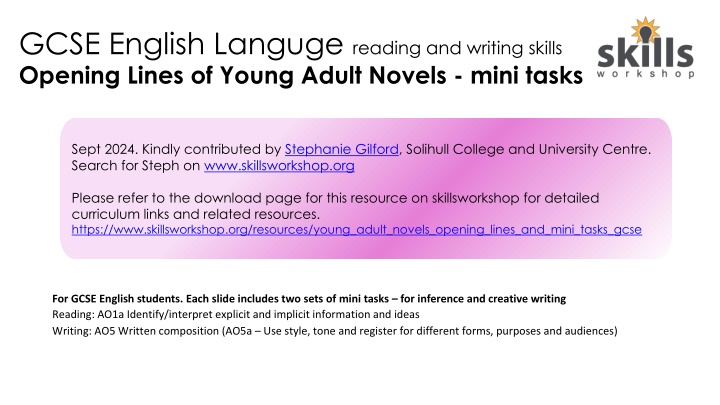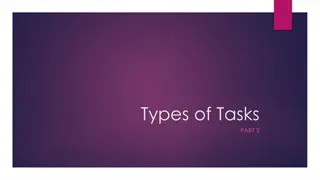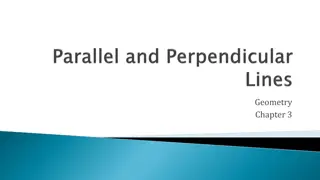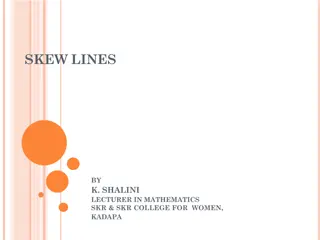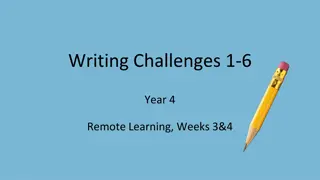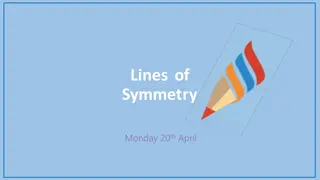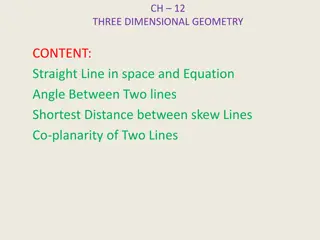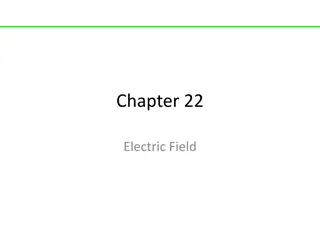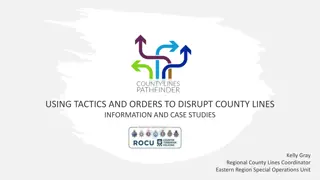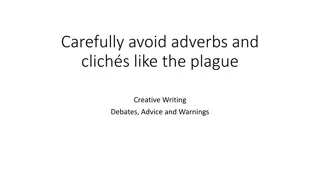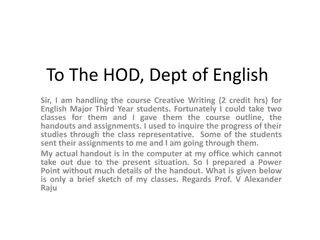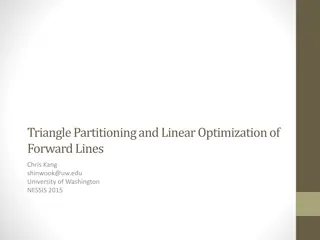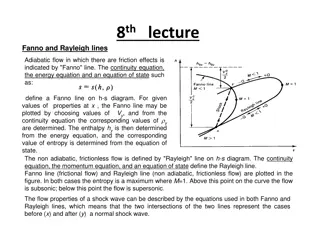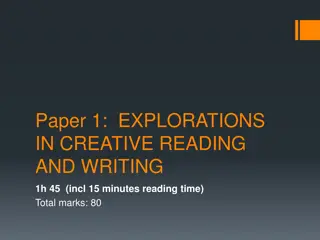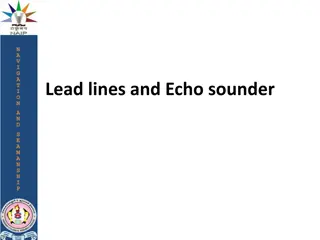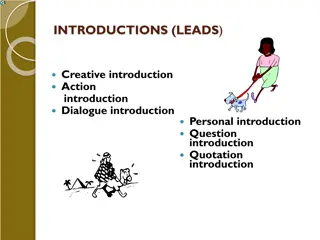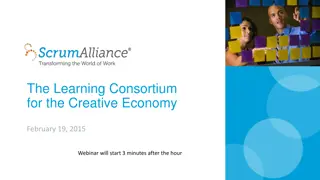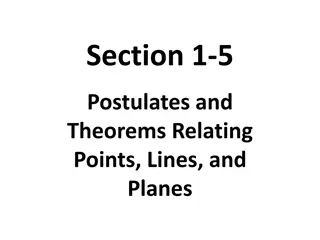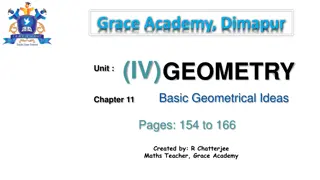Opening Lines Creative Writing Tasks
Engage your GCSE English students with creative writing tasks based on intriguing opening lines from young adult novels. Explore themes of miracles, mysterious disappearances, stupid questions, vivid descriptions, and unexpected confrontations. Encourage students to develop their inference and writing skills while delving into the depths of storytelling.
Download Presentation

Please find below an Image/Link to download the presentation.
The content on the website is provided AS IS for your information and personal use only. It may not be sold, licensed, or shared on other websites without obtaining consent from the author.If you encounter any issues during the download, it is possible that the publisher has removed the file from their server.
You are allowed to download the files provided on this website for personal or commercial use, subject to the condition that they are used lawfully. All files are the property of their respective owners.
The content on the website is provided AS IS for your information and personal use only. It may not be sold, licensed, or shared on other websites without obtaining consent from the author.
E N D
Presentation Transcript
Description: swlogo GCSE English Languge reading and writing skills Opening Lines of Young Adult Novels - mini tasks Sept 2024. Kindly contributed by Stephanie Gilford, Solihull College and University Centre. Search for Steph on www.skillsworkshop.org Please refer to the download page for this resource on skillsworkshop for detailed curriculum links and related resources. https://www.skillsworkshop.org/resources/young_adult_novels_opening_lines_and_mini_tasks_gcse For GCSE English students. Each slide includes two sets of mini tasks for inference and creative writing Reading: AO1a Identify/interpret explicit and implicit information and ideas Writing: AO5 Written composition (AO5a Use style, tone and register for different forms, purposes and audiences)
The way I figure it, everyone gets a miracle. Add your character to the story - what miracle are they looking for? What is a miracle? Do you agree? Does everyone get a miracle? Why/why not? What do they want so badly? What are their feelings before/after? What could a person feel after experiencing a miracle? How do they get their miracle? How does it make them feel?
One minute the teacher was talking about the Civil War. And the next minute he was gone. Write the next paragraph: Where could the teacher have gone for this to be strange? What happens after the teacher disappears? Do you think the teacher walked out of the room? Why/why not? How does the class feel after watching their teacher disappear?
All I did was ask a stupid question. Decide on the setting. If it s a novel for young adults, where is it likely to be set? Write the next paragraph of the story. How did asking the question make them feel? What happened next? Who was the stupid question asked to? What qualifies as a stupid question? What could the question have been?
The early summer sky was the color of cat vomit. What colour are you imagining? Is that an appealing description? Why/why not? Describe the rest of the setting using disgusting, unappealing adjectives. Why didn t the writer use positive adjectives to describe the sky?
"It was clearly his fault I'd punched him in the face." What happens next? Who is the writer referring to with him ? Does the other character hit back? Why did the narrator punch him? (be creative) Who else is there? Where are they?
Ive been locked up for 264 days. Locked up by who? Locked up where? What happens next? Tell us more of the story. Locked up why? What will the impact be on the narrator s state of mind?
' I had just come to accept that my life would be ordinary when extraordinary things began to happen. What does it mean to be ordinary? Write the next paragraph of the story. What does an ordinary life look like? How does the narrator react? What extraordinary thing could have happened? Is the extraordinary thing a one time occurance?
